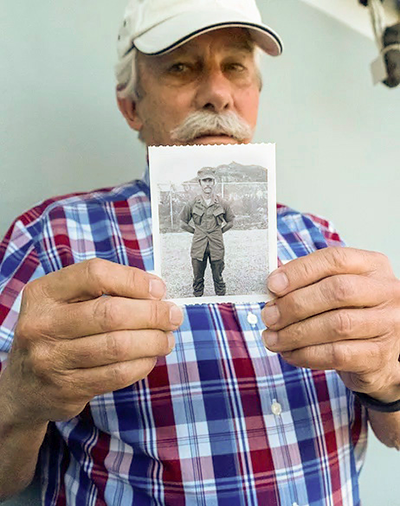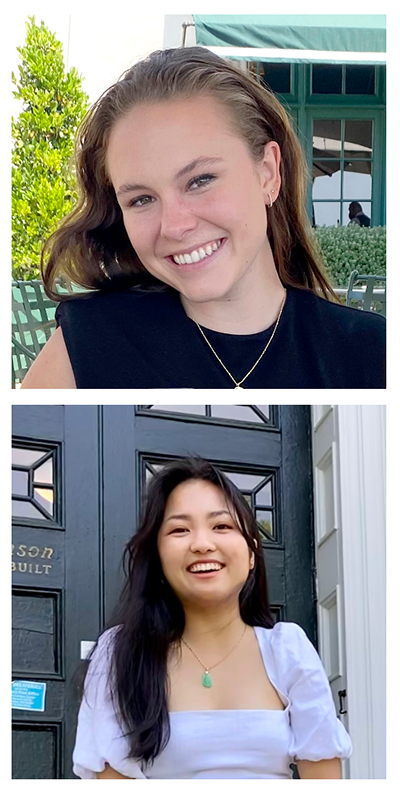
Navy SEAL William Wildrick is among the veterans Spencer (below) photographed. Lin (bottom) interviewed people in Chinatowns.

“I want to give these veterans time and space to share what happened to them,” says Emma Spencer ’23E of the intention behind Vietnam Veterans: Then and Now, her new website of audio interviews and photography. “For some of them who’ve really never spoken about it before, I think it’s an extremely cathartic experience.”
Spencer, a studio art major from Los Angeles who aspires toward a career in photojournalism, spent the summer of 2021 recording and photographing dozens of U.S. military veterans, most now in their 70s and 80s, about their memories of serving in the Vietnam War in their young adulthood.
Among them is her grandfather, Lt. Scott Wilson Sr. ’66, who served on the minesweeper USS Reaper.
Also over the summer, Sabrina Lin ’21 made a podcast called Viral Love, for which she interviewed residents of Chinatowns in New York City, Houston, Los Angeles and Oakland, Calif. Both endeavors are Projects for Peace, made possible by a fund from philanthropist Kathryn W. Davis “to support and encourage today’s motivated youth to create and test their own ideas for building peace.”
Spencer’s website is inspired in part by the Wall of Faces, a virtual exhibit that displays photos of people whose names appear on the Vietnam Veterans Memorial in Washington, D.C.
Spencer hopes to continue her project for many years. On the website, VVThenAndNow.com, she encourages more veterans to contact her to share their stories.
Lin applied for the Projects for Peace grant amid the COVID-19 pandemic, she says, “at a time of increased attention on anti-Asian violence.” Rising rates of discrimination, harassment and physical assault had sparked hashtags like #IAmNotA-Virus and activist groups such as Stop AAPI Hate.
But the problems facing America’s Chinatowns go beyond “eight-second clips that go viral on Twitter of somebody getting shoved in the street,” Lin says. The pandemic, for example, has hurt businesses and accelerated gentrification.
And, of course, Chinatowns are more than just sites of strife—they are living, breathing neighborhoods, home to thousands of people and to what Lin calls “stories of community, resilience and peacebuilding.”
Such stories are the focus of her podcast. “I talked with people as we bought egg tarts and pineapple buns from beloved Chinatown bakeries,” she says in the introductory episode, “in front of storefronts and street musicians, and at tenants’ rights meetings and community protests.”
Lin, who is from the San Francisco Bay Area, was a pre-med student and an anthropology major at Amherst. She is now teaching English in Taiwan on a Fulbright fellowship.
Photos: Wildrick by Emma Spencer; Lin by Annika Lunstad ’21